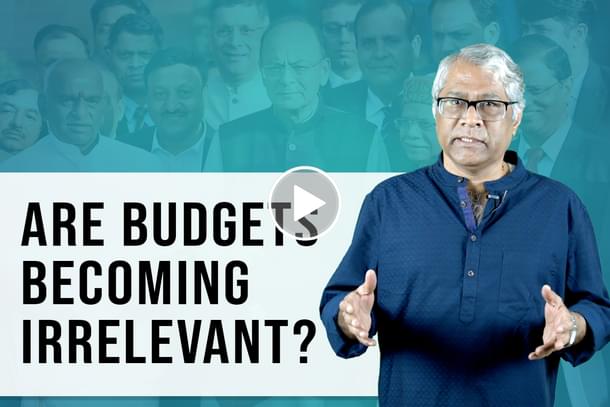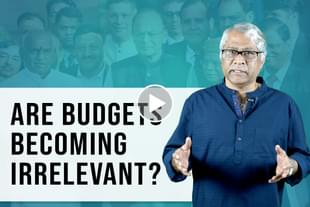Videos
Union Budget 2019: Why Budgets Are Quickly Becoming Irrelevant
Swarajya Videos
Jan 31, 2019, 05:53 PM | Updated Jan 30, 2019, 07:36 PM IST
Save & read from anywhere!
Bookmark stories for easy access on any device or the Swarajya app.


There's a lot of anticipation about the next budget on the 1st of February, but if you come to think of it, actually budgets are just media events.
There's just more hype than substance in any budget.
Consider what all has changed over the last 4-5 years. First, we used to have two budgets – a general budget and a railway budget. One has disappeared into the other. There is no railway budget any more.
Second, look at what's gone out of the budget. For example, indirect taxes were a huge part of the Finance Minister's speech till about two years ago. Now that you have a GST, the entire indirect tax regime, except customs, has gone out, and it is now done by the GST Council.
So what's left in the budget? It is only the direct taxes. And even in direct taxes, can the Finance Minister make changes every day? Can he change corporate taxes every day? Can he change your tax and mine every day? No. Very rarely can you do that.
So, what really happens is that budgets have become one long, boring speech where the Finance Minister speaks out about 13,000 to 15,000 words and speaks for about an hour and a half or even two hours. And at the end of it what you get is essentially the government's view of the economy and how it's going to meet the challenges and what it's going to do. Often it's a political speech.
A budget, for example, which is going to come in the next few days, will be a political speech because there's an election coming in another two months and you're going to get that.
But then why are budgets so important? Do they really impact the economy so much? No. Actually not. Budgets actually are just an annual statement of accounts with small tweaks in revenues, taxes, and expenditures. It is expenditure that impacts the economy. Because that's when the government spends money, it goes to a lot of sectors and those sectors, when they spend, they boost the economy.
But it's not the government that is the only player. So, you and me spending can also impact the economy.
So what really happens is that over a period of time, budgets have become less and less important, but their importance in terms of the media has grown. Why? Because the media makes a lot of money by selling advertisements during budgets. So, each newspaper produces a huge tome that is almost as big as the budget, saying 'here are the budget papers', 'this is what the budget means for you'...
And the TV channels, of course, have hundreds of guests coming in and out every day explaining every arcane detail of the budget.
So they are media events. But nobody really wants to know. What do you really want to know in the budget? If you're an ordinary person, you will probably want to know: Has my tax changed? Am I getting extra concessions? Or is some new road going to come, is a new railway going to come to my village? Those are the kinds of things you want to know. You want to know one thing out of a budget.
But for the media, budgets are everything – because that's what gives them TRPs, that's what gives them extra sales, extra advertisement.
So, my suggestion is, the next time you know there's a budget, take a holiday – you can come back and find out what's there in it. I don't think budgets impact your life as much as you think they do.
The media's life, of course, is greatly impacted by what the budget does. Because that's how they earn their revenues, that's how they get their TRPs.





